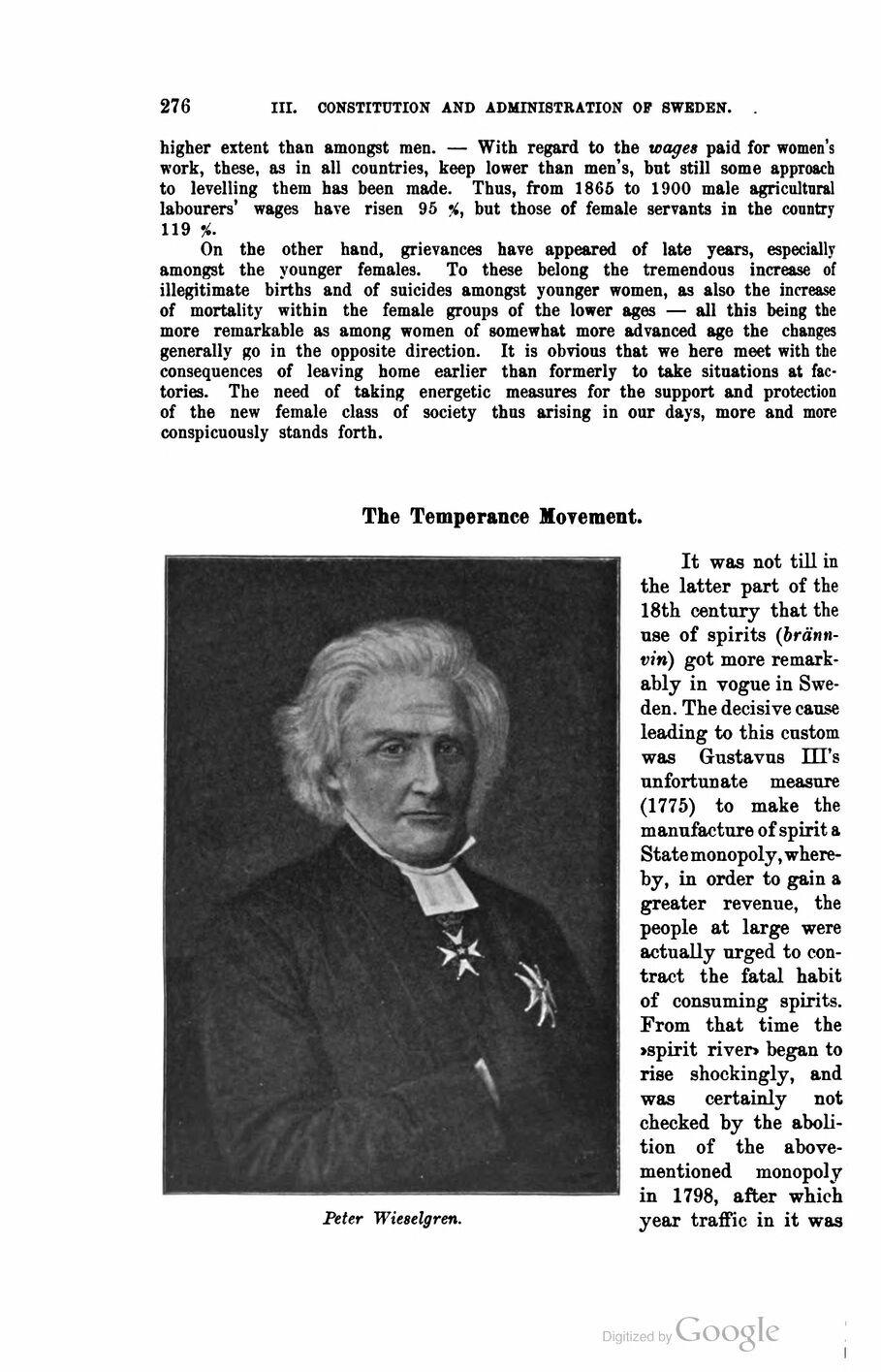
Full resolution (JPEG) - On this page / på denna sida - First part - III. Constitution and Administration - 5. Social Movements - The Woman Question, by Miss Gertrud Adelborg, Stockholm - The Temperance Movement, by K. Blomquist, Prison Gov., Kristianstad, and G. H. von Koch, Editor, Stockholm

<< prev. page << föreg. sida << >> nästa sida >> next page >>
Below is the raw OCR text
from the above scanned image.
Do you see an error? Proofread the page now!
Här nedan syns maskintolkade texten från faksimilbilden ovan.
Ser du något fel? Korrekturläs sidan nu!
This page has never been proofread. / Denna sida har aldrig korrekturlästs.
276
iii. constitution and administration of sweden.
higher extent than amongst men. — With regard to the wages paid for women’s
work, these, as in all countries, keep lower than men’s, but still some approach
to levelling them has been made. Thus, from 1866 to 1900 male agricultural
labourers’ wages have risen 95 %, but those of female servants in the country
119 %.
On the other hand, grievances have appeared of låte years, especially
amongst the younger females. To these belong the tremendous increase of
illegitimate births and of suicides amongst younger women, as also the increase
of mortality within the female groups of the lower ages — all this being the
more remarkable as among women of somewhat more advanced age the changes
generally go in the opposite direction. It is obvious that we here meet with the
consequences of leaving home earlier than formerly to take situations at
factories. The need of taking energetic measures for the support and protection
of the new female class of society thus arising in our days, more and more
conspicuously stands forth.
The Temperance Movement.
Peter "Wieselgren.
It was not till in
the latter part of the
18th century that the
use of spirits
(brännvin) got more
remarkably in vogue in
Sweden. The decisive cause
leading to this custom
was Gustavus IH’s
unfortunate measure
(1775) to make the
manufacture of spirit a
State monopoly,
whereby, in order to gain a
greater revenue, the
people at large were
actually urged to
contract the fatal habit
of consuming spirits.
From that time the
»spirit river» began to
rise shockingly, and
was certainly not
checked by the
abolition of the
above-mentioned monopoly
in 1798, after which
year traffic in it was
<< prev. page << föreg. sida << >> nästa sida >> next page >>